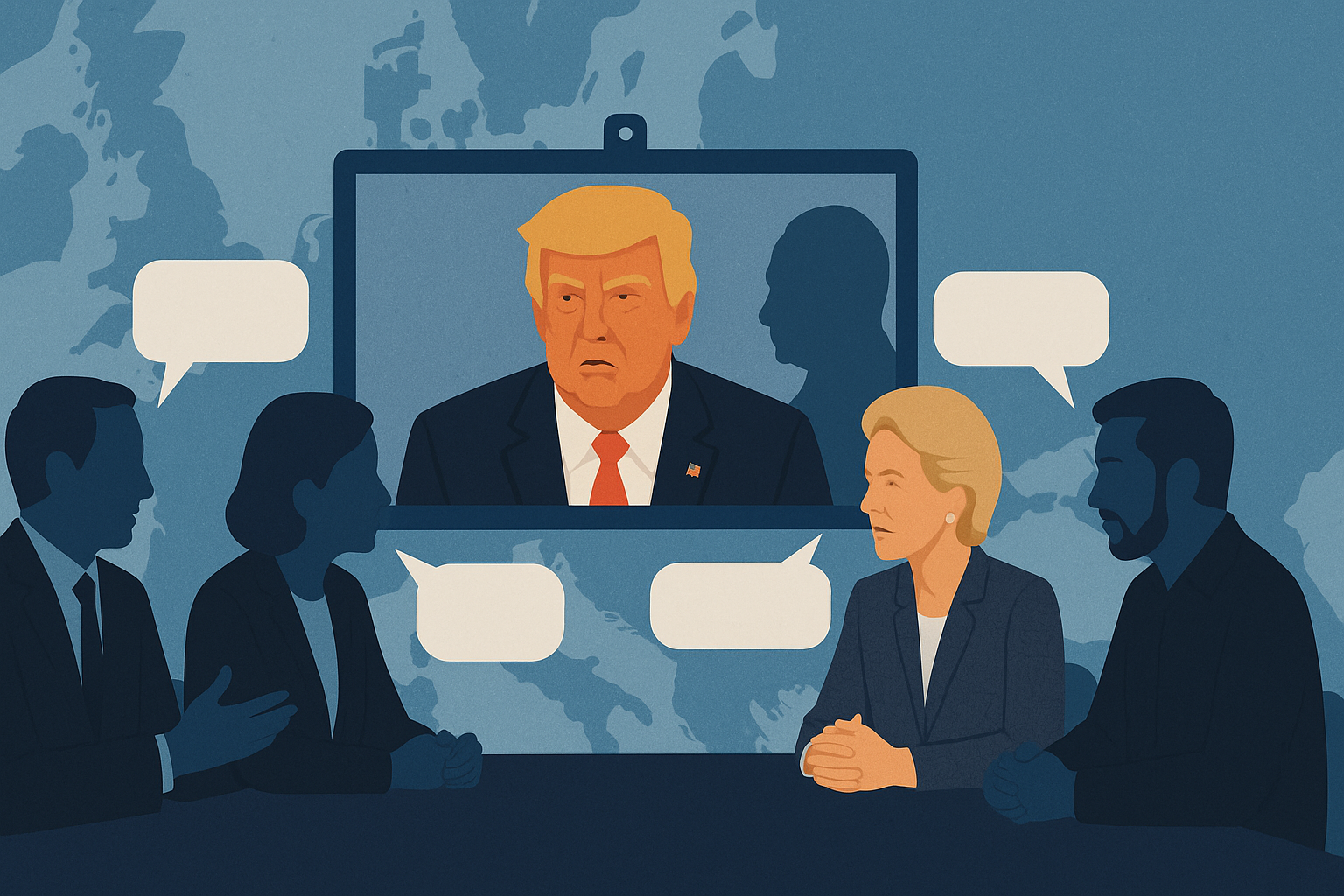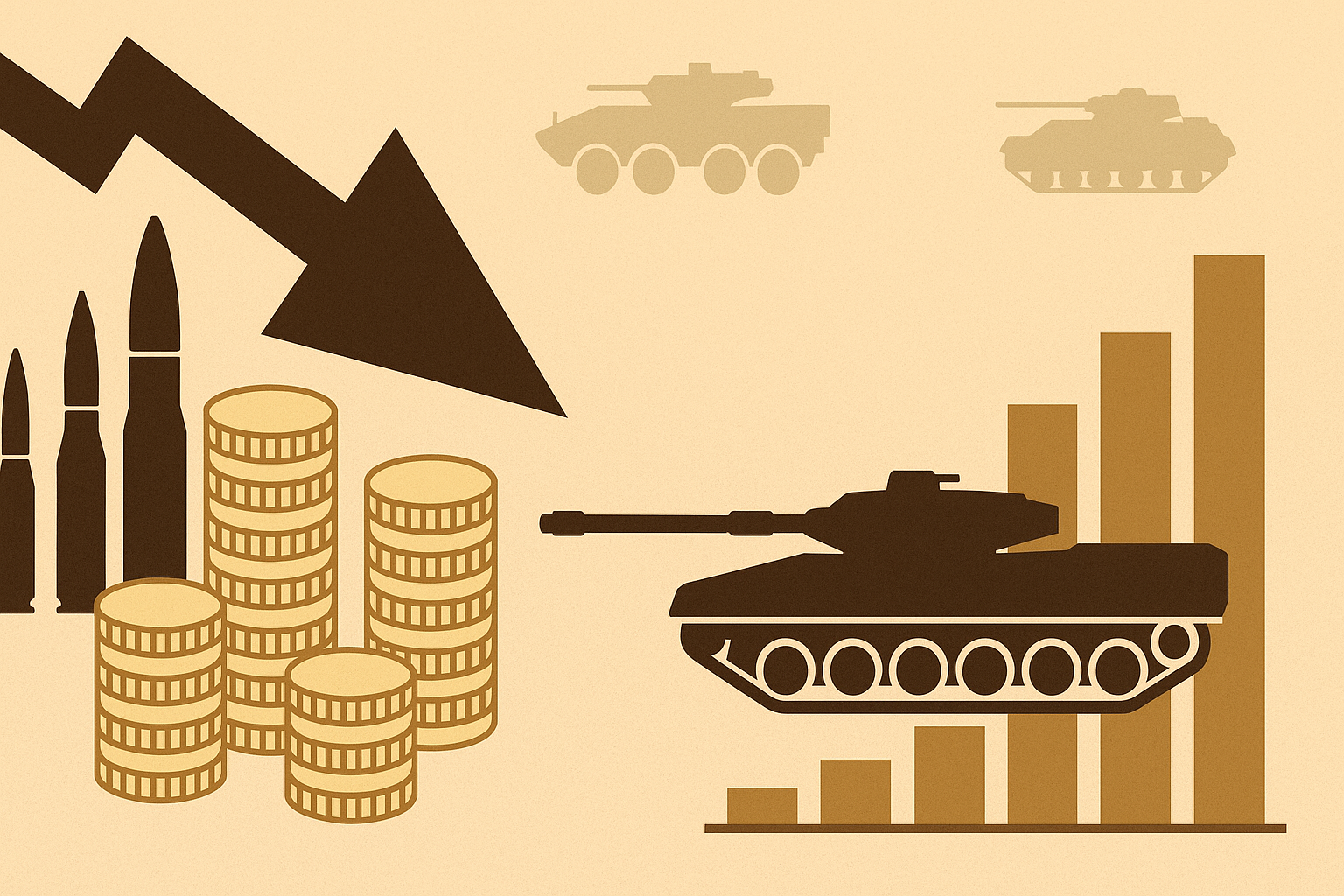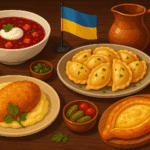European leaders are set to hold high-level consultations with U.S. President Donald Trump ahead of his scheduled meeting with Russian President Vladimir Putin, in an effort to influence talks that could shape Ukraine’s future and Europe’s long-term security.
Germany has called a virtual meeting for Wednesday to coordinate strategy and increase pressure on Moscow before U.S.-led discussions in Alaska on Friday, which will focus on ending Russia’s three-year war in Ukraine.
Strategic Coordination Before Alaska Summit
The pre-summit meeting will include Ukrainian President Volodymyr Zelenskyy and the leaders of Germany, France, the UK, Italy, Poland, and Finland. NATO Secretary-General Mark Rutte, European Commission President Ursula von der Leyen, and European Council President António Costa will also join.
Following their internal talks, the European leaders will hold a joint video conference with Trump, U.S. Vice-President JD Vance, and Zelenskyy. EU foreign ministers are also meeting online the same day to reaffirm unity and ensure Ukraine is not pressured into accepting unfavourable Russian terms for a ceasefire.
“This summit could define Ukraine’s fate and Europe’s security framework for years,” one EU official said, stressing the need for alignment among allies.
Concerns Over Exclusion and Concessions
Trump’s decision to meet Putin in Alaska — without inviting Zelenskyy or European leaders — has raised concerns across European capitals. A senior European diplomat described the meeting as “a significant concession” to Putin, who is under an International Criminal Court arrest warrant for war crimes.
European leaders, including German Chancellor Friedrich Merz, French President Emmanuel Macron, and UK Prime Minister Sir Keir Starmer, are wary of Trump’s previous suggestions of territorial “swaps,” which would see Russia consolidate control over occupied Ukrainian territories. They insist that any ceasefire talks must start from the current front lines, without formal recognition of Russia’s territorial claims.
“Putin only acts under pressure,” Merz said, calling for Zelenskyy’s participation in the Alaska talks. Trump, however, stated that Zelenskyy would be invited to the next meeting with Putin.
Security Guarantees and Lasting Peace
NATO’s Rutte underscored that while de facto occupation might be acknowledged in future agreements, it must not translate into formal political recognition. “It has to be effectual recognition, not political, de jure recognition,” he said.
The UK echoed caution. A spokesperson for Prime Minister Starmer said, “We never trust President Putin as far as we could throw him,” adding that any ceasefire “cannot be an opportunity for President Putin to re-arm.”
Canadian Prime Minister Mark Carney and Starmer jointly reaffirmed their “unwavering support” for Ukraine, emphasising that peace must be “built with Ukraine — not imposed upon it.”
Zelenskyy, for his part, stressed the urgency of the moment. “Now is the moment when there is a real chance to achieve peace. But peace must be real and lasting, and security guarantees must be in place.”








